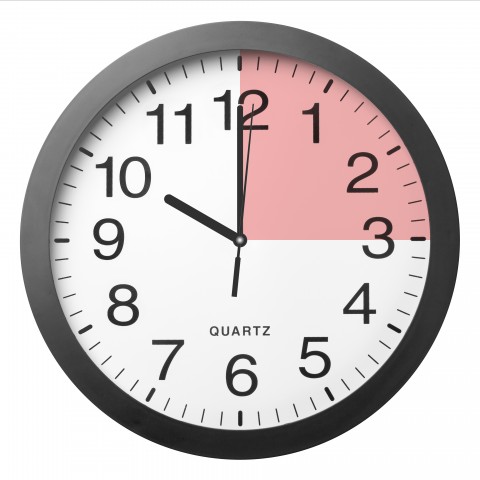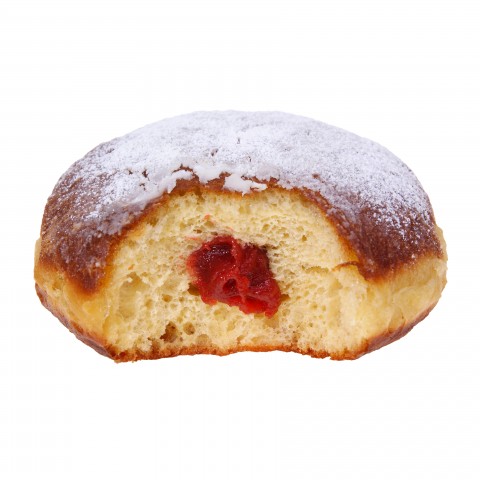
Learning vocabulary is easy when you’re a beginner. Almost every word is new and useful. However, as you proceed on your language learning journey, it’s good to become more selective.
What vocabulary should you study as an intermediate-level Polish learner? Here at PolishPod101.com, we’ve prepared a list of essential intermediate Polish vocabulary words for you.
- → But first, we recommend checking out our article on beginner words to make sure you have the basics down!
 Table of Contents
Table of Contents
- Larger Numbers
- Personal Pronouns
- Intermediate Polish Nouns
- Intermediate Polish Adjectives
- Intermediate Polish Adverbs
- Prepositions
- Conjunctions
- Auxiliary Verbs and Modals
- Final Thoughts
1. Larger Numbers
Being able to count from 1 to 10 is a crucial skill to attain when you first start learning a new language. Now, as an intermediate student, you’re ready to take it a step further. Let’s have a look at larger numbers in Polish:
- 10 – dziesięć
- 11 – jedenaście
- 12 – dwanaście
- 13 – trzynaście
- 14 – czternaście
- 15 – piętnaście
- 16 – szesnaście
- 17 – siedemnaście
- 18 – osiemnaście
- 19 – dziewiętnaście
- 20 – dwadzieścia
- 30 – trzydzieści
- 40 – czterdzieści
- 50 – pięćdziesiąt,
- 60 – sześćdziesiąt
- 70 – siedemdziesiąt
- 80 – osiemdziesiąt
- 90 – dziewięćdziesiąt
If you want to say a number such as “twenty-two” or “thirty-one,” you just have to combine the appropriate numbers together:
(20) dwadzieścia + (2) dwa = (22) dwadzieścia dwa
(30) trzydzieści + (1) jeden = (31) trzydzieści jeden
Now, you’re ready to count by the hundreds:
- 100 – sto
- 200 – dwieście
- 300 – trzysta
- 400 – czterysta
- 500 – pięćset
- 600 – sześćset
- 700 – siedemset
- 800 – osiemset
- 900 – dziewięćset

Just like with tens, to form a number such as “976,” you simply add the numbers together:
(900) dziewięćset + (70) siedemdziesiąt + (6) sześć = (976) dziewięćset siedemdziesiąt sześć
Then come the thousands:
- 1,000 – tysiąc
- 2,000 – dwa tysiące
- 3,000 – trzy tysiące
- 4,000 – cztery tysiące
- 5,000 – pięć tysięcy (note that the form is different from five thousand onward)
- 6,000 – sześć tysięcy
- 7,000 – siedem tysięcy
- 8,000 – osiem tysięcy
- 9,000 – dziewięć tysięcy
- 10,000 – dziesięć tysięcy
There are also two more important big numbers:
- million – milion
- billion – miliard
2. Personal Pronouns
As a beginner, you learned only a few personal pronouns in Polish. Unfortunately, this isn’t the whole story. Polish pronouns, like other parts of speech in Polish, undergo declension. This means that the forms change depending on the case. As an intermediate Polish student, you should know the different pronoun forms for each case:
| Case | Pronoun (1st person singular) |
| Nominative / Mianownik | ja |
| Genitive / Dopełniacz | mnie |
| Dative / Celownik | mnie / mi |
| Accusative / Biernik | mnie |
| Instrumental / Narzędnik | mną |
| Locative / Miejscownik | mnie |
| Case | Pronoun (2nd person singular) |
| Nominative / Mianownik | ty |
| Genitive / Dopełniacz | ciebie / cię |
| Dative / Celownik | tobie / ci |
| Accusative / Biernik | ciebie / cię |
| Instrumental / Narzędnik | tobą |
| Locative / Miejscownik | tobie |
| Case | Pronoun (3rd person singular, masculine) |
| Nominative / Mianownik | on |
| Genitive / Dopełniacz | jego / go / niego |
| Dative / Celownik | jemu / mu / niemu |
| Accusative / Biernik | jego / go / niego |
| Instrumental / Narzędnik | nim |
| Locative / Miejscownik | nim |
| Case | Pronoun (3rd person singular, feminine) |
| Nominative / Mianownik | ona |
| Genitive / Dopełniacz | jej / niej |
| Dative / Celownik | jej / niej |
| Accusative / Biernik | ją / nią |
| Instrumental / Narzędnik | nią |
| Locative / Miejscownik | niej |
| Case | Pronoun (3rd person singular, neuter) |
| Nominative / Mianownik | ono |
| Genitive / Dopełniacz | jego / go / niego |
| Dative / Celownik | jemu / mu / niemu |
| Accusative / Biernik | je / nie |
| Instrumental / Narzędnik | nim |
| Locative / Miejscownik | nim |
| Case | Pronoun (1st person plural) |
| Nominative / Mianownik | my |
| Genitive / Dopełniacz | nas |
| Dative / Celownik | nam |
| Accusative / Biernik | nas |
| Instrumental / Narzędnik | nami |
| Locative / Miejscownik | nas |
| Case | Pronoun (2nd person plural) |
| Nominative / Mianownik | wy |
| Genitive / Dopełniacz | was |
| Dative / Celownik | wam |
| Accusative / Biernik | was |
| Instrumental / Narzędnik | wami |
| Locative / Miejscownik | was |
| Case | Pronoun (3rd person plural, masculine) |
| Nominative / Mianownik | oni |
| Genitive / Dopełniacz | ich / nich |
| Dative / Celownik | im / nim |
| Accusative / Biernik | ich / nich |
| Instrumental / Narzędnik | nimi |
| Locative / Miejscownik | nich |
| Case | Pronoun (3rd person plural, feminine) |
| Nominative / Mianownik | oni |
| Genitive / Dopełniacz | ich / nich |
| Dative / Celownik | im / nim |
| Accusative / Biernik | je / nie |
| Instrumental / Narzędnik | nimi |
| Locative / Miejscownik | nich |
Not sure how to use Polish pronouns? You can learn more about them by visiting this Wikipedia page or heading over to our vocabulary list of the most useful Polish pronouns.
3. Intermediate Polish Nouns
Nouns are another group of words that are important for intermediate students to learn. After all, you need more precise words in order to have more complex conversations.
Time

- century – wiek
- half a year – pół roku
- quarter – kwartał
- decade – dziesięciolecie
- January – styczeń
- February – luty
- March – marzec
- April – kwiecień
- May – maj
- June – czerwiec
- July – lipiec
- August – sierpień
- September – wrzesień
- October – październik
- November – listopad
- December – grudzień
It’s also useful to be able to talk about years in Polish:
- year – rok
- two years – dwa lata
- three years – trzy lata
- four years – cztery lata
- five years – pięć lat
- six years – sześć lat
Note that the form for the word “years” is lat from five years onward. With larger numbers, the form you use (lata or lat) depends on the second number:
- thirty-five years – trzydzieści pięć lat
- twenty-two years – dwadzieścia dwa lata
People

Our next set of intermediate Polish vocabulary words consists of nouns used to describe people. The first form provided is the masculine form, and the second form is feminine.
Professions
- police officer – policjant / policjantka
- nurse – pielegniarz / pielęgniarka
- lawyer – prawnik / prawniczka
- lecturer – wykładowca / wykładowczyni
Family Members
- uncle – wujek
- aunt – ciocia
- grandson – wnuk / wnuczek (diminutive)
- granddaughter – wnuczka
- grandfather – dziadek
- grandmother – babcia
- child – dziecko
- parents – rodzice
Do you know what to expect at a family reunion in Poland? Check out our lesson to find out all about Grandma’s pierogies…
Clothes
No list of intermediate Polish words would be complete without mentioning the essential clothing items:
- pants – spodnie
- shirt – bluzka
- bra – stanik / biustonosz
- panties – majtki
- boxers – bokserki
- socks – skarpetki
- shoes – buty
- sweater – sweter
- jacket – kurtka
- cap – czapka
- scarf – szalik
To learn even more clothing vocabulary, check out our lessons on winter clothes and summer clothes and accessories. The weather in Poland can be surprising, so it’s good to be prepared!
Places Around Town
With your growing confidence in your Polish-language skills, you may feel more prepared to ask for directions. Here are some important places around town you may want to ask about:
- bank – bank
- pharmacy – apteka
- grocery store – sklep spożywczy
- vegetable shop/stand – warzywniak
- petrol station – stacja benzynowa
- shopping mall – galeria handlowa
- theater – teatr
- cinema – kino
- restaurant – restauracja
- café – kawiarnia
- museum – muzeum

School and Office
Speaking of places to go, many people find themselves in schools or offices on a daily basis. Here are some useful vocabulary words on these topics:
- mug – kubek
- eraser – gumka
- laptop – laptop
- screen – ekran
- printer – drukarka
- scanner – skaner
- bench – ławka
- blackboard / whiteboard – tablica
- charger – zasilacz / ładowarka
Getting ready to work in Poland? Remember to check out our lesson titled Polish for the Workplace beforehand.
Body Parts
Now, here are some intermediate Polish words for naming the parts of the body. These words are important to learn, as you never know when you might end up needing medical assistance.
- nail(s) – paznokieć / paznokcie
- hair – włos / włosy
In Polish, we most often use the plural form of the word for “hair” (i.e. piękne włosy – beautiful hair).
- eyelashes – rzęsy
- eyelids – powieki
- tooth / teeth – ząb / zęby
- finger(s) – palec / palce
- toe(s) – palec u nogi / palce u nogi
Food

You may have learned the names of some basic foods as a beginner, but now it’s time to expand your intermediate Polish vocabulary by becoming familiar with even more words related to food and dining.
- cucumber – ogórek
- carrot – marchewka
- potatoes – ziemniaki
- cherry – wiśnia
- strawberry – truskawka
- grapes – winogrona
- chicken – kurczak
- beef – wołowina
- pork – wieprzowina
- sweets – słodycze
- breakfast – śniadanie
- lunch – obiad
- dinner – kolacja
- knife – nóż
- fork – widelec
- plate – talerz
You probably know that Polish food is delicious. If you can’t travel to Poland at the moment, check out these Polish recipes to make yourself something yummy.
4. Intermediate Polish Adjectives
Adjectives are another key part of speech, as they make your vocabulary richer and allow you to express yourself more precisely.
Describing Clothes
Earlier, you learned the names of different clothing items in Polish. All you need to complete your clothing-related vocabulary are some adjectives!
- tight – ciasny
- loose – luźny
- striped – w paski
- checkered – w kratkę
- dotted – w kropki
- cotton – bawełniany
- wool – wełniany
- elastic – elastyczny
- linen – lniany
Describing Colors
Being able to talk about colors is a practical skill you’ll be able to utilize in a variety of contexts. Take a look:
- blue – niebieski
- light blue – jasnoniebieski
- navy blue – granatowy
- purple – fioletowy
- orange – pomarańczowy
- yellow – żółty
- pink – różowy

Describing Emotions
Describing emotions is another useful skill for intermediate Polish learners to acquire. Here are some adjectives you can use to let others know how you’re feeling:
- exhausted – wykończony
- irritated – zirytowany
- grateful – wdzięczny
- calm – spokojny
- nervous – nerwowy
- demanding – wymagający
- strict – surowy
- lenient – pobłażliwy
Describing Positive Qualities
Have you just eaten the best dish of your life? Or met a truly remarkable person during your visit to Poland? Below, you’ll find a list of intermediate Polish vocabulary words you can use to offer praise where it’s due.
- super – super
- unique – unikalny
- special – specjalny
- extra – ekstra
- genius – genialny
- funny – zabawny
- cute – słodki
- clean – czysty
- strong – silny
Describing Negative Qualities
Of course, some situations or people might make you want to complain instead, which is an equally important skill.
- horrible – okropny
- ugly – brzydki
- disgusting – obrzydliwy
- rude – niegrzeczny
- mean – wredny
- cruel – okrutnynerwowy
- dirty – brudny
- weak – słaby
5. Intermediate Polish Adverbs
While adjectives describe nouns, adverbs describe verbs, adjectives, or even other adverbs. Here are some words to help you explain when, where, how, or to what extent something is done:
Adverbs of Time
- already – już
- still – jeszcze
- now – teraz
- then – wtedy
- rarely – rzadko
- often – często
- never – nigdy
- all the time – cały czas
- usually – zwykle
At your level, you should already know how to ask “What time is it?” in Polish. But just in case you don’t, don’t waste any more time and amend it by visiting our lesson.
Adverbs of Place
- nowhere – nigdzie
- everywhere – wszędzie
- somewhere – gdzieś
- up(stairs) – na górze
- down(stairs) – na dole
- far – daleko
- near – blisko
Adverbs of Quality
Keep in mind that some of these Polish adverbs are considered adjectives in English, as this may be a bit confusing at first.
- fast – szybko
- slow – wolno
- difficult – trudno
- easily – łatwo
- high – wysoko
- low – nisko
- cheap – tanio
- expensive – drogo
- young – młodo
- old – staro
Adverbs of Quantity
This is the last group of important adverbs for intermediate students of Polish:
- a lot – dużo
- a little – mało
- a bit – trochę
- nothing – nic
- everything – wszystko
6. Prepositions
Prepositions are little words that can change the entire meaning of a sentence—so don’t underestimate them!
Prepositions of Time
- after – po
- before – przed
- until – do
- from…to – od…do
Prepositions of Space

- on – na
- in – w
- under – pod
- next to – przy
Other Prepositions
There are also a few other important prepositions that you should learn:
- without – bez
- with – z
- between – pomiędzy
- thanks to – dzięki
7. Conjunctions
We use conjunctions (also known as “linking words”) to connect two or more parts of a complex sentence. Because they’re crucial for building longer sentences, it’s a good idea to add these words to your intermediate Polish vocabulary early on.
- and – i / oraz
- so – więc
- because – ponieważ / bo
- that’s why – dlatego
- but – ale
- nevertheless – niemniej jednak
- even if – mimo że
- or – albo / lub / czy
- if – jeśli / jeżeli
- neither…nor – ani…ani
- either…or – albo…albo
8. Auxiliary Verbs and Modals
Last but not least, auxiliary verbs and modals are essential elements of any language. As you advance in your studies, you’ll find that they play a key role in many intermediate Polish grammar structures.
- can – móc
- have to – musieć
- should – powinno się
- to be – być (used to create the future tense)
- to become – zostać
9. Final Thoughts
Did you know any of these words already, or were they all new to you? We would love to hear from you in the comments!
There are many intermediate Polish vocabulary words that you’ll have to learn beyond the scope of this blog post. However, after learning the words on this list, you’ll be able to see a significant difference in the way you express yourself in Polish.
There’s no single blog post or vocabulary list that can teach you a language. If you truly want to speak Polish, you should have a well-planned learning program.
PolishPod101 is a platform that can give you exactly that. In addition to our vast number of free vocabulary lists, we provide audio and video lessons by native speakers—not to mention an array of other free resources at your disposal. If you’re not sure where to start, we recommend checking out our Intermediate Polish course.
Are you ready to give it a try? Create your free lifetime account today!










